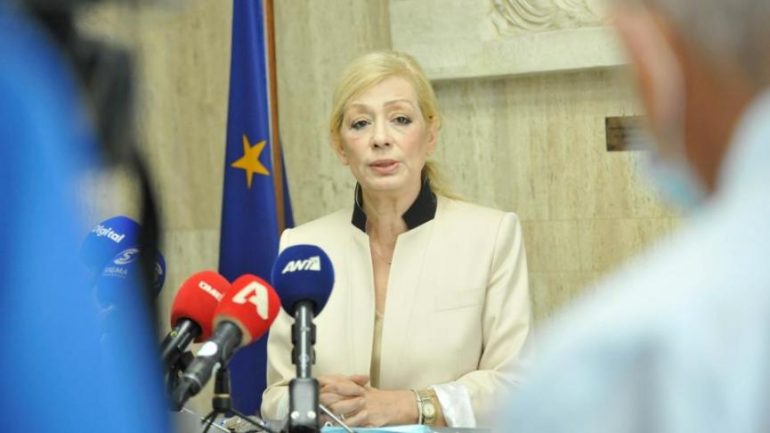The Labor Advisory Board is meeting again today to discuss a number of "open" labor issues.
The Minister of Labor, Zeta Aimilianidou, will receive representatives of the Trade Unions and Employers' Organizations that make up the ESS in order to continue the discussion and possibly lock open funds regarding the establishment of the National Minimum Wage.
However, in today's meeting it is not excluded to discuss other issues such as the regulation of telework and the employment framework of workers from third countries.
Regarding the introduction of the National Minimum Wage, the government through Zeta Aimilianidou had set as an "informal" timetable for the completion of discussions with the social partners at the end of the year, in order for the relevant bill to get its way to a vote by 2022. by the Plenary Session of the Parliament.
Despite the steps taken since the beginning of September, when the pandemic "allowed" the holding of ESS meetings, so far important questions remain regarding the establishment of the EKM: its amount and the way it is calculated, whether it will be an EKM or if each branch will have its own, if it will cover all professions or if there will be exceptions etc. Which means that it is possible that there will be a deviation from the timetable and the dialogue will be extended for 2022.
However, according to estimates by participants in the Labor Advisory Board who spoke to Economy Today, all these important open issues "may be locked in today's meeting".
Telecommuting
At the same time, the issues of Teleworking remain open, for which a timetable had been set at the end of 2021. On the issue of legislative regulation of teleworking, there seemed to be a consensus of employers' and trade unions and that the issue would be "locked" without particular difficulties. Weeks ago, however, in a letter, the CCCI informed the Ministry. Labor opposes telecommuting because it will remove, as the letter states, the tool of business flexibility. He also referred to a relevant European Agreement, the basic principle of which is the voluntary implementation of the teleworking model, which is decided on the basis of an agreement between employers and employees.
Employment of workers from third countries
The pressure of time is also on the issue of redefining the employment framework of people from third countries. And this is because employers' organizations are "burning" as they claim to staff companies that have a shortage of manpower, in order to operate smoothly. In fact, the issue is more acute in the tourism sector where the lack of staff can leave exposed a number of companies (hotels, restaurants, etc.) that need staff immediately in order to train it to meet the requirements of the tourist season. It was decided at the last ESS meetings to discuss this issue, to take the appropriate steps to determine which and how many of the registered Cypriots and EU unemployed can fill the vacancies, and then to do what is necessary to hire third-country workers where necessary.
